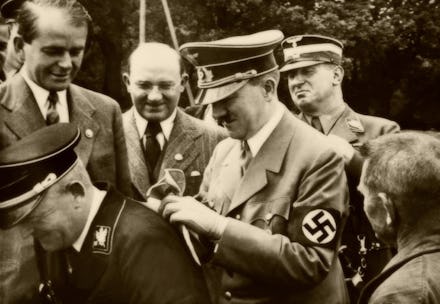The Most Disturbing Sentence in the Bombshell Report on the CIA and Nazi Spies

The New York Times published an incredible report Sunday detailing how the CIA and FBI employed "at least a thousand" Nazis as spies and informants during the Cold War. But the most disturbing thing about the report isn't the reliance on Nazis, but the troubling (and eerily familiar) way U.S. spy agencies justified their partnership.
The agency hired one former SS officer as a spy in the 1950s, for instance, even after concluding he was probably guilty of "minor war crimes."
Distinguishing between "minor" and "major" war crimes is an act of moral gymnastics, one that U.S. intelligence agencies dedicated to protecting America have embraced wholeheartedly. In an effort to combat existential threats to the United States, from communism to terrorism, intelligence agencies have frequently engaged in morally and ethically repugnant behavior as part of the effort to "do whatever it takes."
Torture, indefinite detentions and even NSA spying are moral and ethical lapses that we often justify as features of the "post-9/11 America," where the boundary between liberty and security has become so fluid that we're often led to believe that, well, this is how life in America is after the towers came down. But this is the most disturbing part about Lichtbau's "minor war crimes" sentence: It reminds us that the legal and moral gymnastics of Froomkin's "zealots" have been a part of our moral and juridical regime for decades.